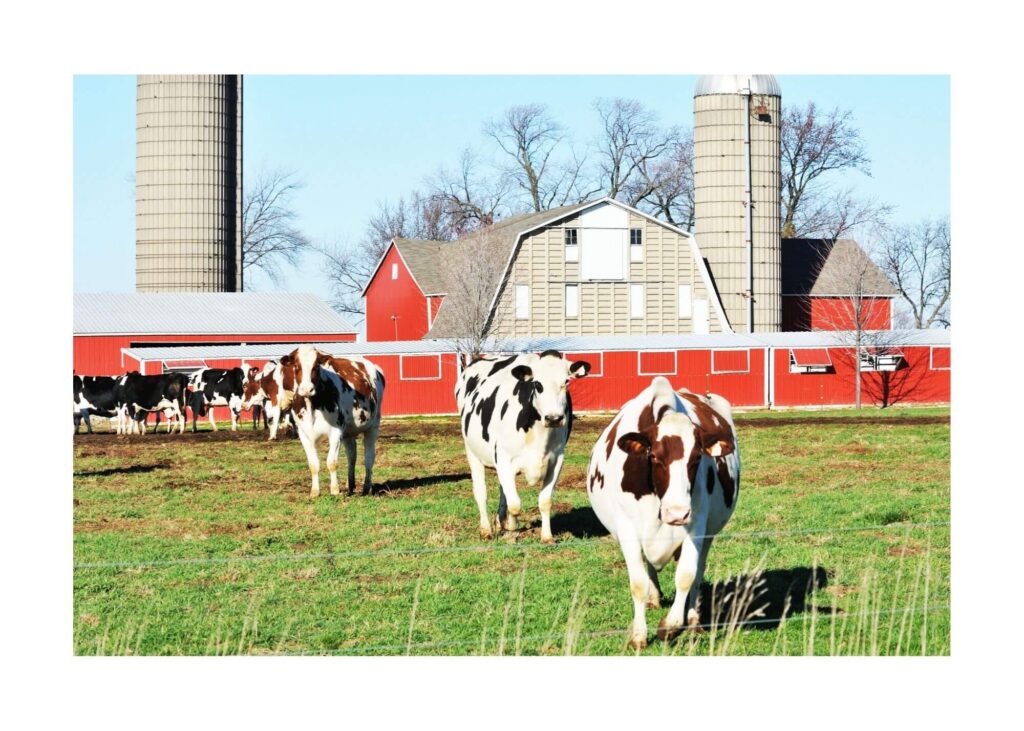
As the weather starts to get warmer, are you noticing a foul smell on your farm and are your neighbors commenting on it as well? Want to know what to do? Here are seven tips to help you reduce odors on your property.
- The most important thing is to start with healthy soils and good topography before you put down any footing in your paddocks. If you dump gravel or sand on top of muck or in a low, wet area, you’re certain to wind up with a mud and odor problem. Make sure you have a good, even slope (about 2%) when putting footing down. Any depressions in the underlying soils will allow water (and urine/manure) to pool under the gravel, potentially causing odors.
- A good manure management program will go a long way toward solving odor issues. Begin by picking up manure every one to three days in all confinement areas and high-traffic locations. Cover your manure pile with a tarp to keep it from getting rain-soaked, and be sure it is away from streams, ditches, rivers, or other water bodies to prevent runoff contamination.
- If your manure has been picked up and you still have odor problems, the simplest and cheapest solution might be to drag or harrow the paddock. This helps aerate the area, allowing aerobic microbes to flourish and break down small pieces of odor-causing organics. It also helps dry the area.
- Keeping things dry, or at least well-drained when outdoors, will go a long way to reducing odors. Moisture buildup is one of the main causes of odor; dry areas will not volatize as much as wet ones will. Within the barn, have doors or screens to shield rain or a roof overhang. Invest in good, working gutters and downspouts that divert rainwater away from the outsides of buildings and confinement areas. Good ventilation also helps dry things out (by releasing and not trapping moisture) and allows odors to dissipate. Provide proper ventilation through windows in stalls, open doorways, cupolas and vents in roofs, and ceiling fans — in essence, having a barn as open as possible.
- If an odiferous area develops outdoors in a confinement area where your animals urinate perpetually, you might have to occasionally dig out and replace footing in that area. Don’t let it get to that point where you dread going into the paddock—just refresh a little bit of the gravel or sand footing as needed.
- A variety of microbial spray products are available that you can apply to urine spots and across confinement areas to neutralize odors. These products contain different types of “friendly” bacteria, enzymes, and/or fungi. They come in highly concentrated solutions that can be diluted and sprayed on smelly paddock areas with a garden sprayer. Beneficial microbes break down ammonia and organic material that cause odors and attract flies. You can apply these safe solutions as frequently as you detect odors. Beneficial microbial sprays are available at organic garden supply companies or on the internet.
- Zeolite products can also be effective. Zeolites are naturally occurring minerals found in clay with a highly porous structure. The pores in the zeolite minerals bind with ammonia molecules, holding onto them until naturally occurring bacteria break down and eliminate the ammonia, thereby eliminating odors. Zeolite is in several brands of stall deodorizer products. You can purchase these products, which look like finely ground kitty litter, at feed stores and safely sprinkle them in stalls or other barn areas to help eliminate odors.
Now you are ready to tackle the stink and make your farm fresher smelling for you, your animals, and your neighbors.Information gathered from Alayne Blickle, Sweet Pepper Ranch, in Nampa, Idaho.